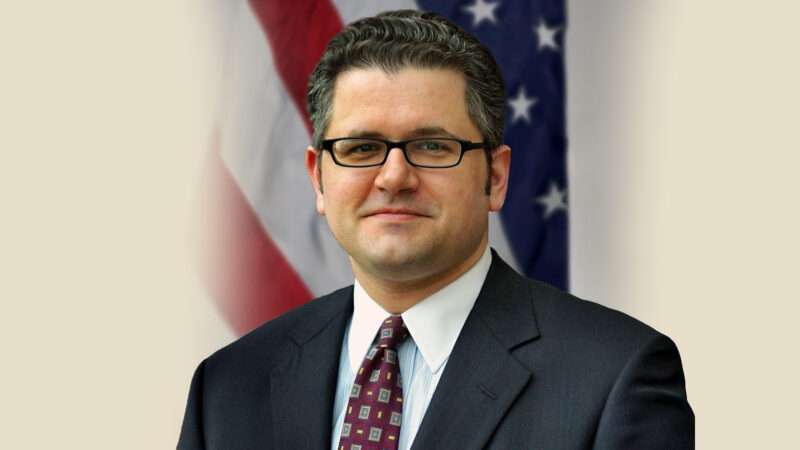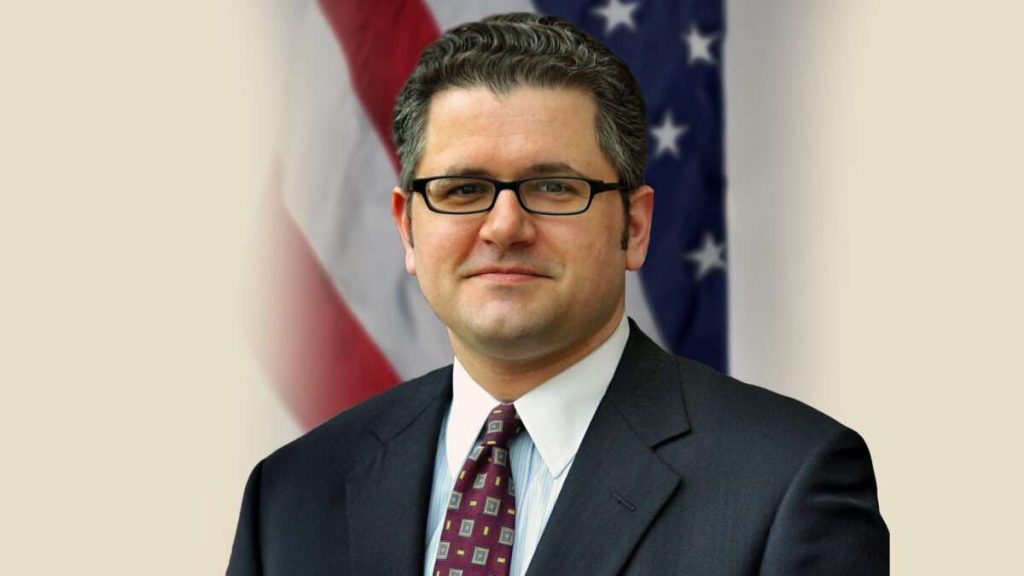
If you have a mortgage on your home, the odds are that it’s backed by one of two congressionally chartered, government-sponsored enterprises (GSEs), Fannie Mae and Freddie Mac. Those agencies buy up mortgages, bundle them into securities, and then sell those to investors. Defenders of the GSEs say they’re important for boosting homeownership generally and sustaining the standard 30-year fixed-rate mortgage specifically. Critics argue they serve mostly to make the financial system riskier and more statist.
One such critic is Mark Calabria, the former head of the Federal Housing Finance Agency that has acted as conservator of the GSEs since 2008. In an interview with Reason‘s Christian Britschgi, he argues that Fannie and Freddie do little to expand homeownership.
Q: Supporters of Fannie Mae and Freddie Mac argue that they’re essential for sustaining the 30-year, fixed-rate mortgage—a product a lot of people like. Do you agree with that?
A: Let’s start by reminding ourselves what is special about the 30-year fixed-rate mortgage. Obviously the most special part is, it’s fixed for 30 years.
The risky part of that—from the lender’s perspective—is interest rate risk. The important point here is Fannie and Freddie don’t protect against interest rate risk; they protect against credit risk. What they are guaranteeing you against is that the borrower won’t repay.
The actual provision of a 30-year duration has nothing to do with what Fannie and Freddie provide. Fixed-rate financing is not unheard of in the rest of the world. It actually happens quite often. You can go to Germany and get a 20-year fixed-rate mortgage. The reason we have a relatively available fixed-rate mortgage in the United States is because our inflation rates tend to be lower.
Q: What do you make of the broader claim that Fannie and Freddie make mortgages more affordable and therefore increase homeownership rates?
A: Fannie and Freddie were rounding errors in the mortgage market till about 1980. These were just small enterprises that did not have a big impact on the mortgage market. And the homeownership rate has been steady since the 1960s.
What Fannie and Freddie provide is not a homeownership subsidy but a home debt subsidy. And we have seen this repeatedly, whether it’s the mortgage introduction, whether it’s mortgage credit subsidies—these things work through the demand channel, not the supply channel.
To the extent that it is increasing the mortgage market, it’s increasing mortgage demand, which if you’re not doing anything about supply is only going to run up prices.
Many of the products that Fannie and Freddie do provide are provided by others. If you look at incomes above the Fannie and Freddie conforming loan limit [higher-value mortgages that the GSEs do not secure], the Jumbo market, homeownership rates are higher there.
Of course, homeownership is correlated with income, so it’s not surprising. But if the argument was that Fannie and Freddie are needed for homeownership, then why are homeownership rates higher outside of the Fannie/Freddie-dominated part of the market than they are within the Fannie/Freddie-dominated part of the market?
Q: What’s the affirmative case for getting rid of Fannie and Freddie, then? Could they be safely gotten rid of?
A: The primary effect of Fannie and Freddie has been more leverage on the part of financial institutions and the part of households, and then more interconnectedness. We have stuffed large amounts of our financial system with Fannie and Freddie debt. Were Fannie made to fail, then Fidelity might likely fail.
So we’ve created all this interconnectedness in the financial system that I think leaves our financial system much more vulnerable. Mostly what we’ve gotten out of it is a run-up in housing prices without any real impact on homeownership rates.
What would the world look like without Fannie and Freddie? We’d look like Canada. We’d have five or six big banks that did most of the mortgage lending.
To be sure, Canada has mortgage subsidies as well. But no other country has this degree of subsidization.
I’ve often said you could get rid of Fannie and Freddie and America would still lead the world in mortgage socialism.
This interview has been condensed and edited for style and clarity.
The post Mark Calabria on Mortgages, Interest Rates, and Debt appeared first on Reason.com.







